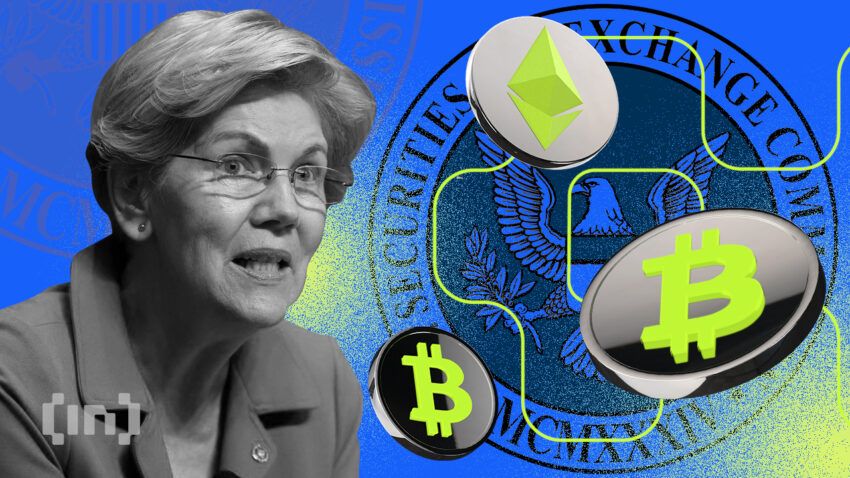U.S. Senator Elizabeth Warren wants to claw back bonuses paid to bank executives whose poor risk mismanagement allegedly caused the recent banking crisis.
Warren asked bank executives if they would return the $60 million they earned after implementing weaker controls.
Senator Warren Says Executives Ignored Glaring Risks to Earn $60M
She said it was wrong that others should pay for risky activities executives used to enrich themselves.
Silicon Valley Bank executive Gregory W. Becker reportedly earned $40 million after Congress allowed the bank to assume more risk.
In addition, the bank ignored 17 Federal Reserve (Fed) warnings addressing liquidity risk management, weak governance, and capital planning as Becker allegedly enriched himself. Becker confirmed he earned $40 million since 2019.
Warren also asked crypto-friendly Signature Bank former chairman Scott Shay if he would return the $20 million he earned while ignoring liquidity issues that resulted in a $2.5 billion Federal Deposit Insurance Corporation (FDIC) rescue. Shay said he didn’t plan on returning the funds.
Senator Lummis also accused Shay of deflecting blame onto regulators and digital assets depositors for the bank’s March liquidity crisis.
Depositors pulled money from Silicon Valley Bank and Signature Bank after crypto’s flagship Silvergate Bank closed its doors. Both banks sold securities at significant losses to create liquidity for withdrawals.

The FDIC later stepped in to secure deposits.
The collapses rattled confidence in the U.S. banking system and sent jitters through U.S. crypto platforms. Circle’s USDC stablecoin lost its peg after it revealed frozen deposits at SVB. Investment platforms MaiCapital and Digital Asset Capital Management were forced to onboard offshore banking partners.
Politicians Set in Motion Bills to Enforce Stricter Bank Rules
Several politicians, including Warren, blame the failures on relaxed capital and liquidity requirements for smaller banks.
In 2019, 50 Republican and 17 Democratic senators voted to repeal certain aspects of the Dodd-Frank Act, allowing smaller banks to take on more risk.
According to Warren, Becker aggressively lobbied Congress to overturn elements of the Dodd-Frank Act to let Silicon Valley Bank take on more risk.
Consequently, the Massachusetts senator and U.S. Representative Katie Porter have introduced a new bill to restore stricter regulations.
The new Secure Viable Banking Act would compel banks with $50 billion or more in assets to come under the oversight of the Fed and comply with Dodd-Frank stress tests.
Warren confirmed she and three other lawmakers also introduced a bill to limit “crazy paychecks.”
U.S. Representative Andy Barr argues that low long-term interest rates and government overspending encouraged inflation which led to the collapse.
Barr told Fox Business on March 14, 2023:
“The underlying causes [were] basic fiscal and monetary policy errors and a failure — not of a lack of regulation — but inadequate bank supervision. The regulators need to do some soul-searching about extracurricular political errands they are on instead of basic nuts and bolts bank supervision.”
Warren’s bill will likely face opposition from House Republicans and Senate Republicans’ intentional prolonging of debate around the bill.
For BeInCrypto’s latest Bitcoin (BTC) analysis, click here.
Disclaimer
In adherence to the Trust Project guidelines, BeInCrypto is committed to unbiased, transparent reporting. This news article aims to provide accurate, timely information. However, readers are advised to verify facts independently and consult with a professional before making any decisions based on this content. Please note that our Terms and Conditions, Privacy Policy, and Disclaimers have been updated.


